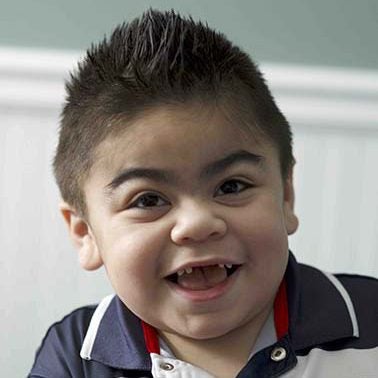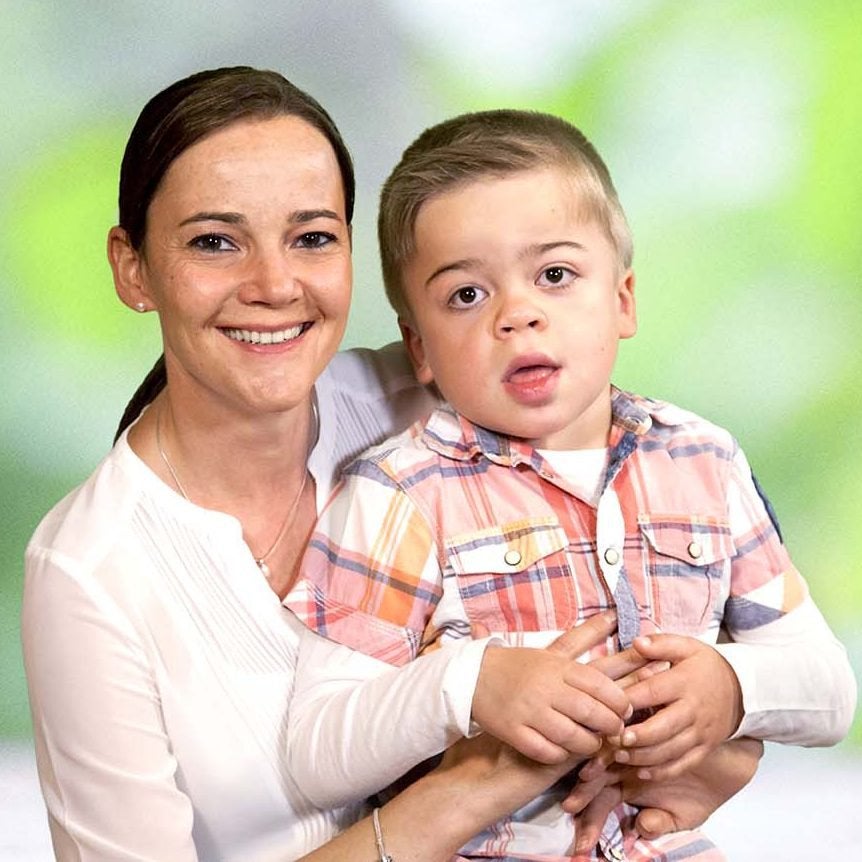What is Hunter syndrome?
Hunter syndrome, also known as mucopolysaccharidosis type II (MPS II) is a rare genetic disease almost exclusively affecting boys. Hunter syndrome is one of a number of lysosomal storage diseases (LSDs). It is estimated that the condition is present in 1 in 162 000 live births.
Hunter syndrome can affect any part of the body and causes a number of signs and symptoms. In the majority of people with Hunter syndrome, the signs and symptoms present between the ages of 2 and 4 years.
Many of the signs and symptoms are common childhood complaints, and it is the combination of them that may indicate Hunter syndrome. The symptoms of Hunter syndrome are different in each person, so there is no single typical patient experience.


Learn more about the signs and symptoms of Hunter syndrome
What causes Hunter syndrome?
Hunter syndrome is one of a number of lysosomal storage diseases (LSDs). LSDs are conditions in which cells are unable to properly break down certain molecules. In Hunter syndrome, an enzyme called iduronate-2-sulfatase (I2S) is deficient or sometimes completely absent.
In a healthy cell, I2S breaks down particular molecules, known as glycosaminoglycans (GAGs). These molecules were previously called mucopolysaccharides, which is why Hunter syndrome is also known as mucopolysaccharidosis type II (MPS II).
If I2S is deficient or absent, GAGs build up, which prevents the cell from functioning properly. All healthy cells (except red blood cells) make the I2S enzyme, so its deficiency can affect any part of the body. This is why Hunter syndrome may have symptoms in several organs, and is called a multisystemic disease.
Learn more about the early signs and symptoms that each of these patients experienced


Talk to your doctor
In Hunter syndrome, glycosaminoglycans (GAGs) build up, which leads to parts of the body not functioning properly. As the GAGs accumulate over time, the signs and symptoms of Hunter syndrome progress.
The progressive nature of the condition means that early diagnosis is essential, so that disease management can begin as soon as possible.
Since Hunter syndrome often affects several different parts of the body, it is likely that a number of specialist healthcare professionals will be involved in your child’s care to help manage the range of symptoms.
If you think that your child shows symptoms of Hunter syndrome, speak to your doctor.
If you have recently received a diagnosis of Hunter syndrome, it can be hard to know what questions to ask, and to keep track of all the information from your appointments with healthcare professionals. The Discussing Hunter syndrome with your child’s doctor is a resource that may help you talk to your doctor about your child’s symptoms. The guide highlights the key signs that should prompt suspicion of Hunter syndrome.
Discussing Hunter syndrome with your child’s doctor is a resource that may help you talk to your doctor about your child’s symptoms.
References
1: Camille Peri; 2020, Hunter Syndrome (MPS II), WebMD, accessed on 20 Dec 2021, “https://www.webmd.com/children/hunter-syndrome-mps-ii#1"



